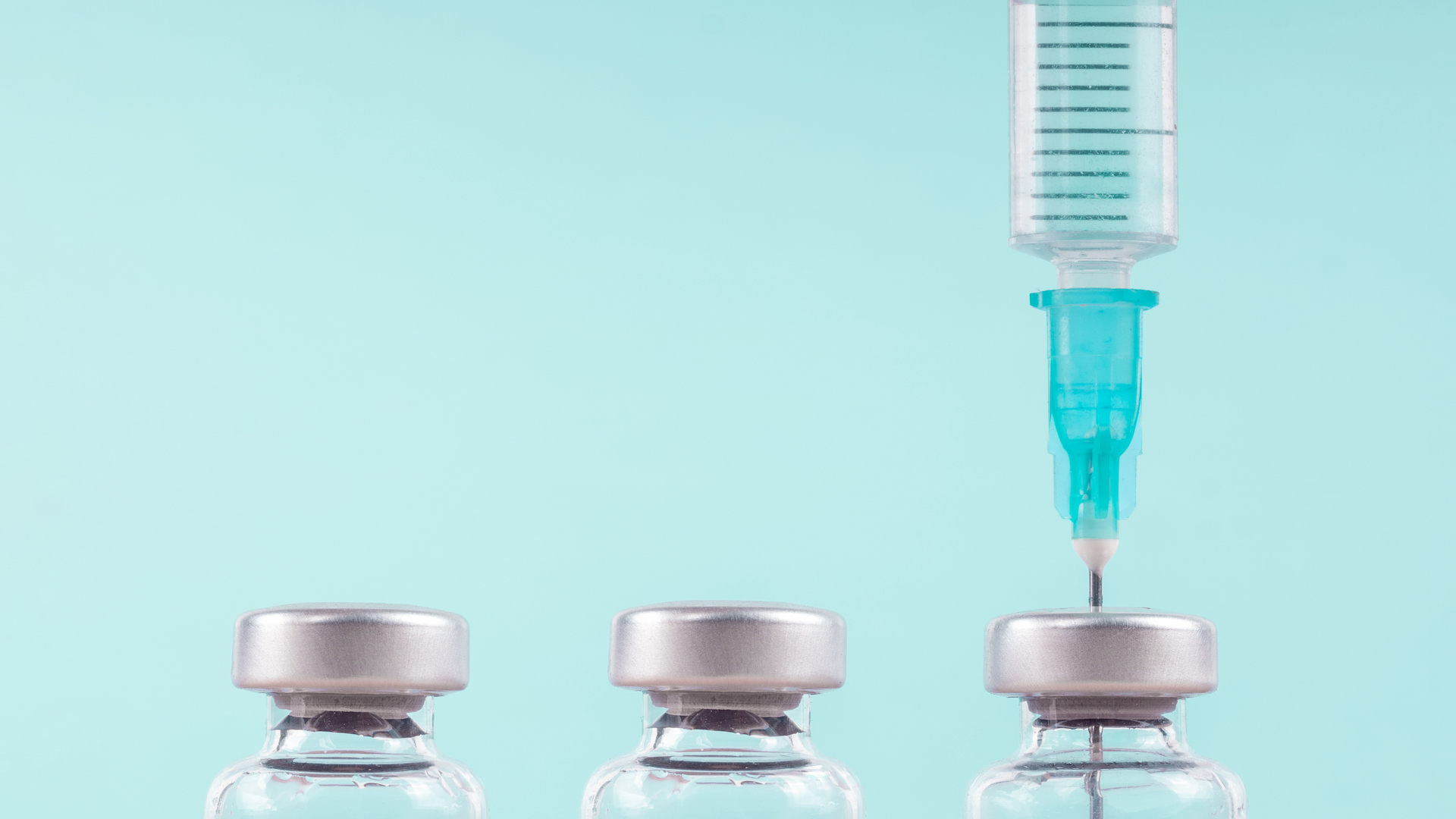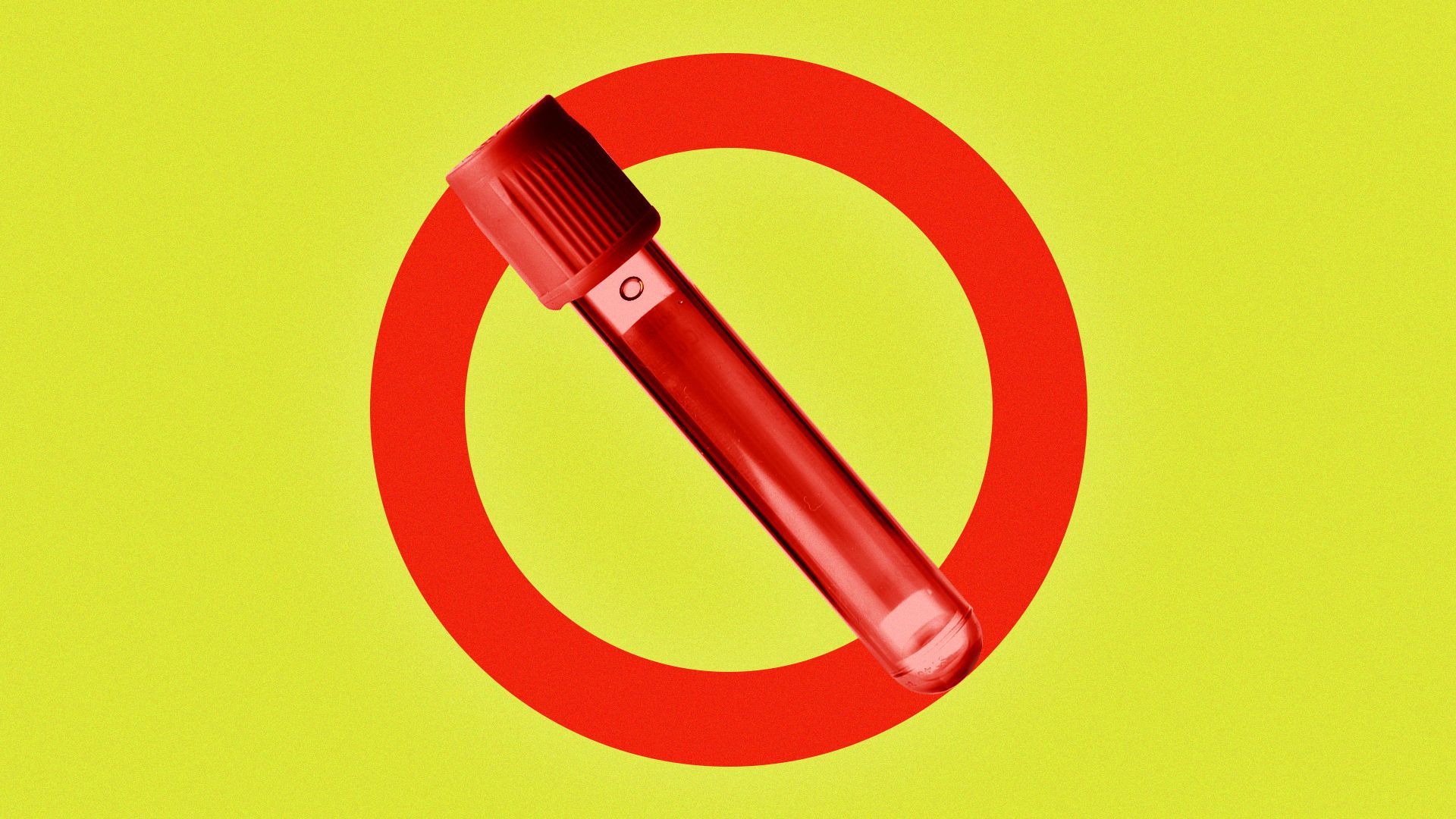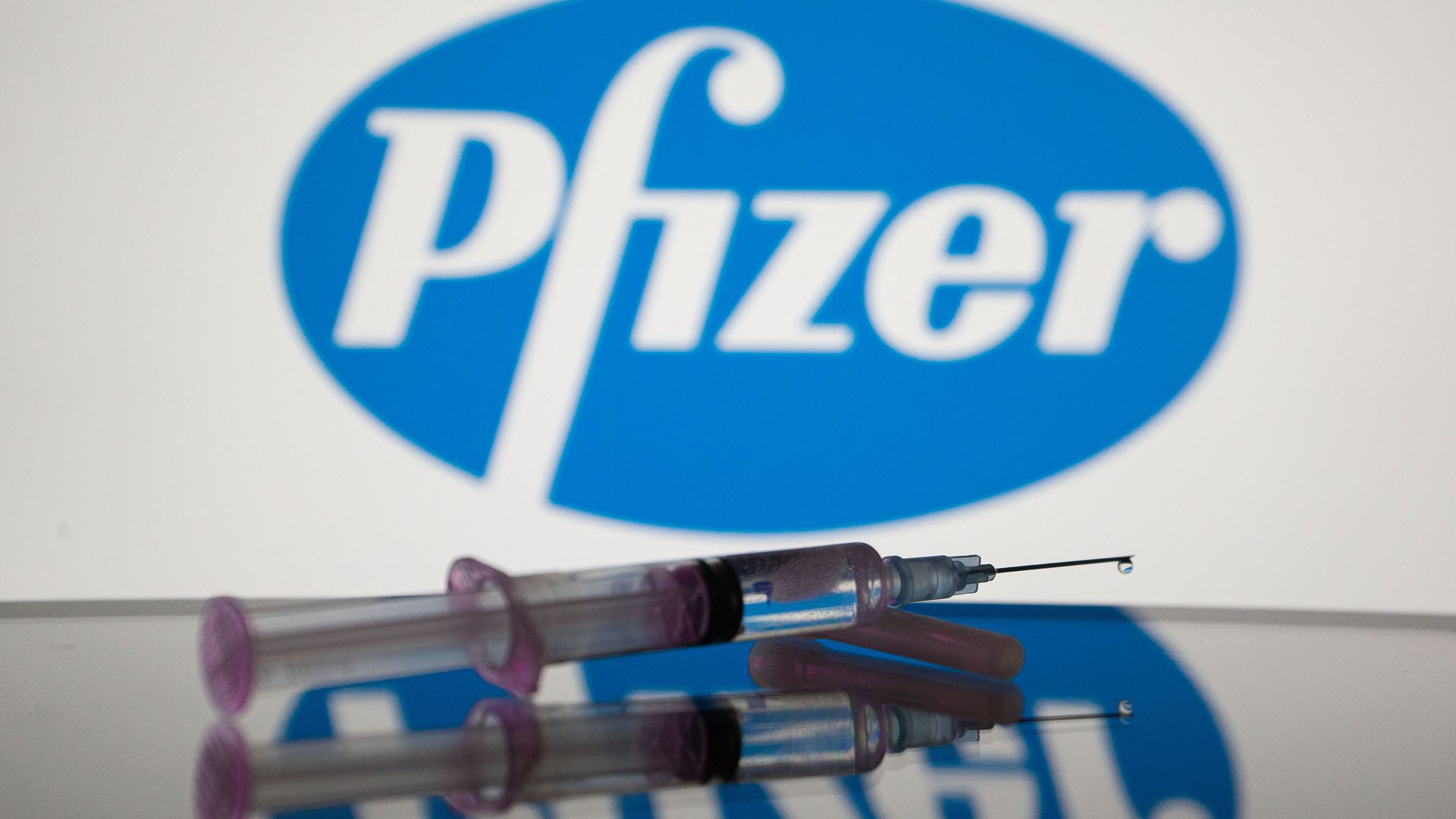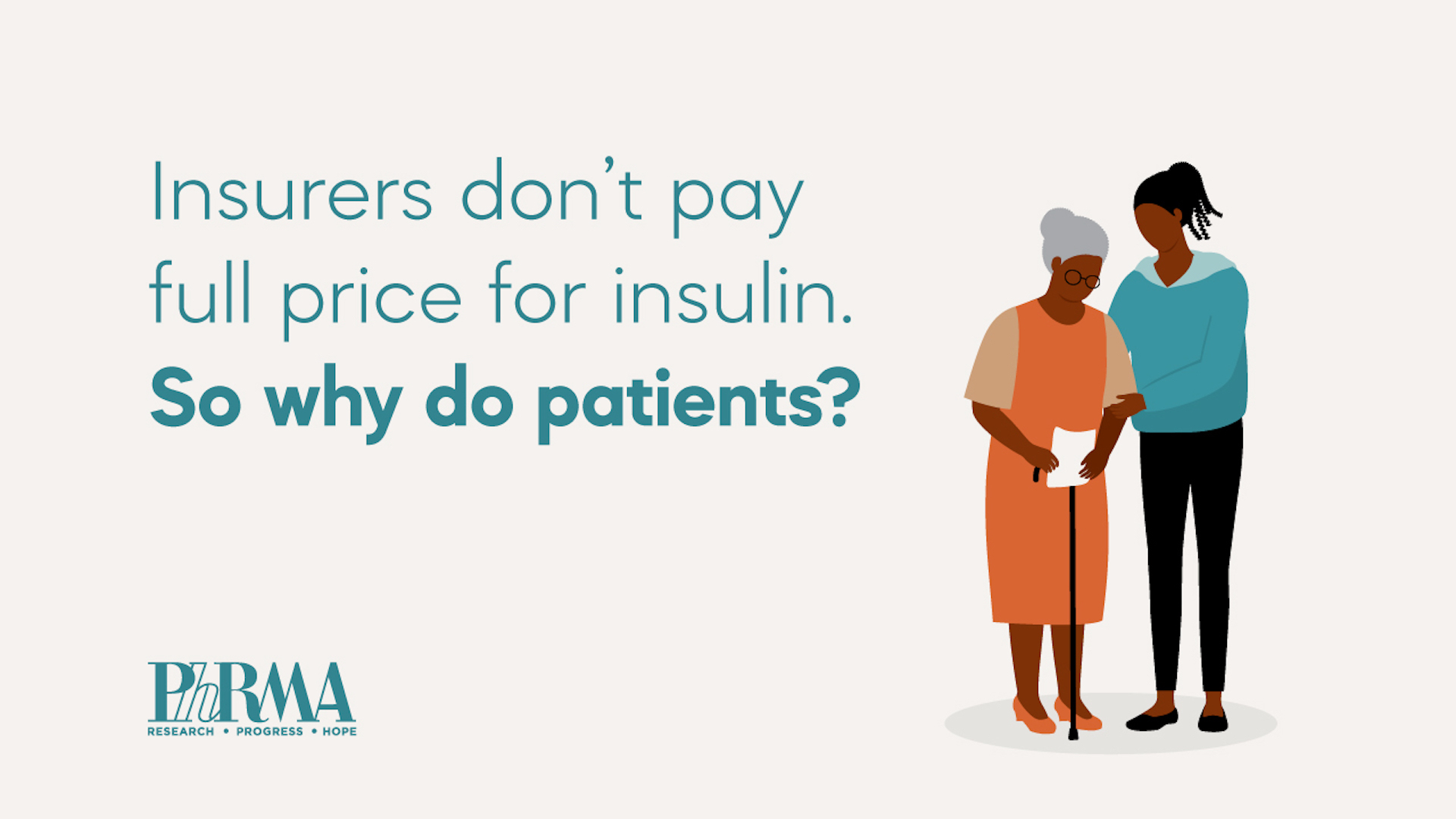| |
| |
| |
| Presented By PhRMA |
| |
| Axios Vitals |
| By Tina Reed · Aug 23, 2022 |
| Happy Tuesday, Vitals readers. Today's newsletter is 1,086 words or a 4-minute read. |
| |
| |
| 1 big thing: Fauci's successor will inherit a polarization problem |
 |
|
| NIAID director Anthony Fauci. Photo: Anna Moneymaker/Getty Images |
| |
| NIAID director Anthony Fauci's retirement will leave a gaping hole in the nation's flagship biomedical research agency and tee up a test of whether his successor will be an equally public figure — and as controversial, Axios' Caitlin Owens writes. Why it matters: Fauci's consistent presence as the public face of the pandemic response over the last two and a half years has been a source of comfort for some Americans while enraging others. What happens in his absence will reveal whether such deep polarization stems more from Fauci or is a function of today's political environment. What they're saying: In an interview with Axios, Fauci said that his notoriety is largely attributable to circumstances that put him "right in the eye of the hurricane of some very important emerging infectious disease outbreaks." - Throughout a career responding to the HIV/AIDS crisis, the Zika virus, Ebola and the COVID pandemic, it's been important to "try and explain [the science] to the American public in a way and a form in a way they can really appreciate. Whether or not someone else can and wants to do that, I imagine they could," he said.
State of play: The NIH still doesn't have a permanent director following former director Francis Collins' retirement from the agency last year. Lawrence Tabak is currently acting director. - Fauci's departure leaves another large hole to fill in the midst of several public health crises.
Between the lines: While Fauci has drawn plenty of praise for his relentless public persona and straight talk, he's become an avatar of government overreach to many on the political right. Republicans have attacked him as being too eager for media attention and for offering inconsistent advice as the pandemic wore on. Yes, but: The challenge for Fauci's successor will be to communicate the science to Americans without alienating a third of the country — if such a thing is possible today. Go deeper. |
    |
| |
| |
| 2. Fauci's future spotlight |
 |
|
| Photo illustration: Brendan Lynch/Axios. Photo: Shawn Thew-Pool/Getty Images |
| |
| Fauci's time in the spotlight likely won't end with his retirement: Republicans plan to investigate his role in the COVID pandemic if they take control of the House or Senate next year, Axios' Victoria Knight and Caitlin write. The intrigue: Although the GOP could always subpoena Fauci as a civilian, they may not need to. "I have never had any problem defending what I've done and I have nothing to hide," Fauci said in an interview with Axios. "I've testified before the Congress hundreds of times over the last 38 years. I have no trouble testifying before Congress." - Republicans have tried to link Fauci to so-called gain-of-function research — in which a virus can be tweaked to become more virulent — and connect NIH-funded work to the pandemic. They've also stepped up personal attacks on Fauci, to tap into voter frustrations with the pandemic.
Share this story. |
    |
| |
| |
| 3. Chronic conditions and poor finances linked |
 Data: Becker, et al., 2022, "Association of Chronic Disease With Patient Financial Outcomes Among Commercially Insured Adults"; Note: The study analyzed insurance claims data from January 2019 to January 2021 and commercial credit data in January 2021; Chart: Axios Visuals Individuals with a higher number of chronic conditions have a higher chance of encountering financial hardship like medical debt, according to a study published in JAMA Internal Medicine. Why it matters: It further cements the connection between well-being and financial stability. University of Michigan researchers analyzed insurance claims data from January 2019 to January 2021 linked to commercial credit data in January 2021 for adults in Michigan. - Among more than 2.8 million commercially-insured adults, rates of delinquent debt in collections, low credit scores and recent bankruptcy went up with the number of chronic conditions like cancer, heart disease and depression that people experienced.
Zoom in: The adjusted amount of medical debt in collections jumped 60%, from $784 for individuals with no chronic conditions to $1,252 for individuals with seven to 13 chronic conditions. - Chronic conditions associated with the greatest increases in medical debt in collections were severe mental illness ($274), substance use disorders ($268), stroke ($235), congestive heart failure ($234) and liver disease ($228).
- "These results have important implications for patients, as worsened financial health is associated with increased rates of forgone medical care, worse physical and mental health, and increased mortality," the researchers wrote.
|
    |
| |
| |
| A message from PhRMA |
| Improving access to life-saving medicine |
| |
 |
| |
| Insurance companies and PBMs don't pay full price for insulin. So why do patients? Rebates, discounts and other payments from manufacturers lower the cost of insulins by more than 80% on average — but insurers and PBMs usually don't share these discounts directly with patients. Stand up for patients. |
| |
| |
| 4. EDs aren't testing overdoses for fentanyl |
 |
|
| Illustration: Allie Carl/Axios |
| |
| Only 5% of overdose patients brought to emergency departments are tested for fentanyl, Epic Research and the University of Maryland's Center for Substance Abuse Research (CESAR) report. Why it matters: An all-time high of more than 100,000 people died from drug overdoses in the U.S. last year driven by synthetic opioids such as fentanyl. But we're not tracking the sheer magnitude of the problem. By the numbers: Researchers analyzed more than 315,000 emergency department overdose visits between 2017 and 2022 using deidentified data from Cosmos, a data set held by the EHR company Epic. - They found the opiate testing rate is nearly 50%.
- When patients were tested for fentanyl, the positivity rate exceeded 40%, more than three times that of opiates like morphine, heroin and codeine, they said.
Testing may be low, they said, because standard urine toxicology screening panels offered by commercial labs like LabCorp and Quest include a test for natural opioids but require a separate test for synthetic opioids. What they're saying: "Our findings highlight the need for a centralized overdose surveillance system and a nationwide standard for toxicology screenings in overdose treatment," said Eric Wish, director at CESAR and co-author, in a statement. |
    |
| |
| |
| 5. U.S. life expectancy drops |
 Data: Arias, et al., 2022, " U.S. State Life Tables, 2020"; Map: Simran Parwani/Axios Life expectancy in the U.S. dropped by 1.8 years from 2019 to 2020, according to new CDC data. - The decline was mostly due to the COVID-19 pandemic and increases in unintentional injuries, specifically drug overdose deaths.
|
    |
| |
| |
| 6. Pfizer-BioNTech apply for updated COVID shot |
 |
|
| Photo illustration: Nikos Pekiaridis/SOPA Images/LightRocket via Getty Images |
| |
| Pfizer and BioNTech said Monday they submitted an application to the FDA for an updated COVID-19 booster that targets the Omicron BA.4 and BA.5 subvariants, Axios' Adriel Bettelheim writes. The big picture: The Biden administration has been pressing to have updated boosters widely available by mid-September. What they said: The companies said the data supports emergency use authorization of a 30-microgram booster dose for individuals 12 years of age and older. - The "bivalent" shot is aimed at protecting against both the original COVID strain in the current Pfizer-BioNTech vaccine, along with the Omicron BA.4/BA.5 subvariants.
- Preclinical data showed a booster dose "generated a strong neutralizing antibody response against Omicron BA.1, BA.2 and BA.4/BA.5 variants, as well as the original wild-type strain."
Our thought bubble: The latest of the Axios/Ipsos Coronavirus Index found 80% of those who've received the vaccine say they're likely to get an Omicron-specific booster — and polling has found higher interest among older Americans. - But the unvaccinated aren't likely to jump on board with this latest round and with interest in taking precautions waning, it's unclear how great the uptake will ultimately be, especially among the younger crowd.
|
    |
| |
| |
| A message from PhRMA |
| Congress should address the system we use to pay for medicines |
| |
 |
| |
| Insurers and PBMs receive discounts on insulins from manufacturers but don't usually pass these savings directly to patients. The impact: Patients are burdened with higher than necessary out-of-pocket costs. Learn more. |
| |
 | | Why stop here? Let's go Pro. | | |










No comments:
Post a Comment